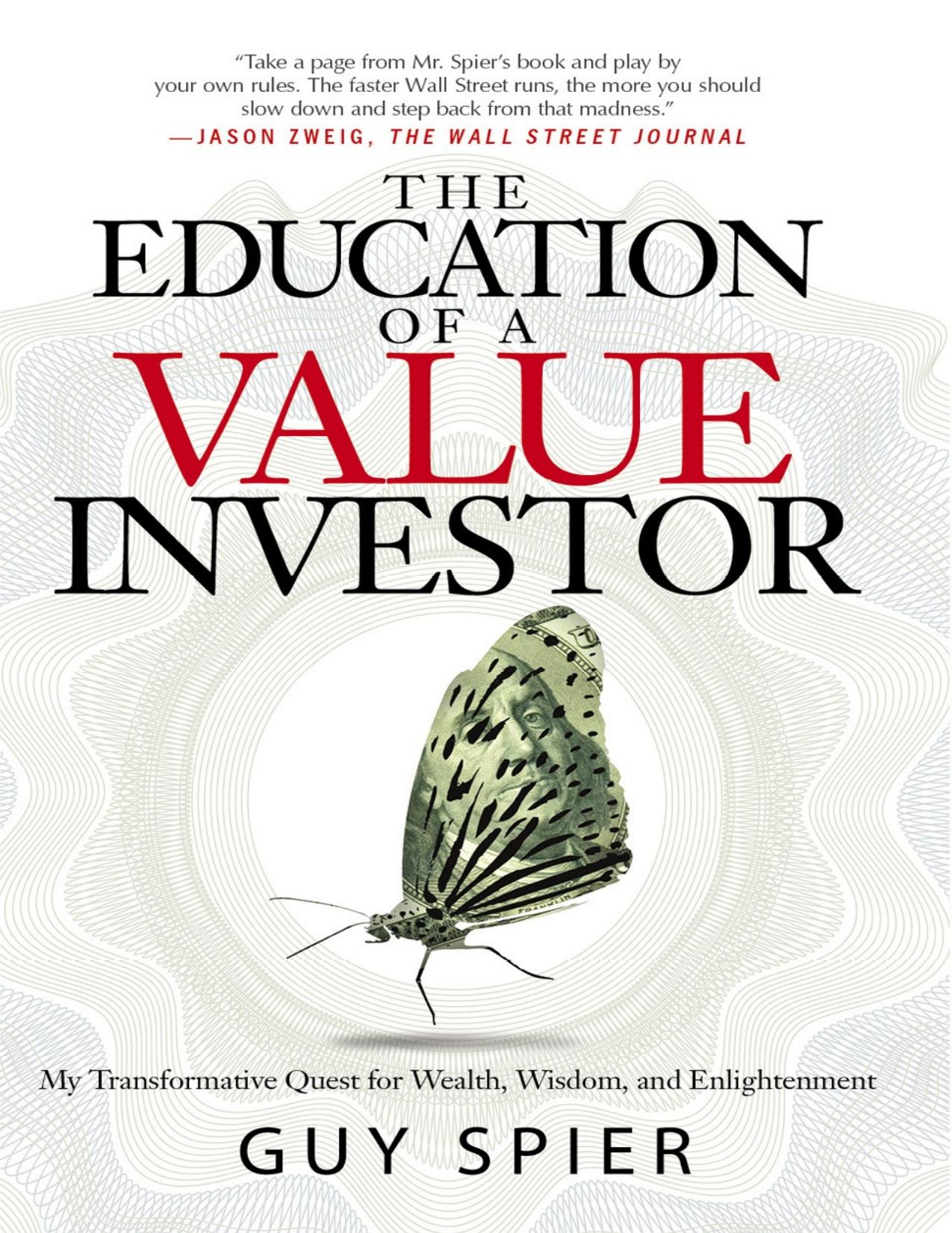The Education of a Value Investor by Guy Spier

Author:Guy Spier
Language: eng
Format: epub, pdf
Publisher: St. Martin's Press
Published: 2014-07-16T16:00:00+00:00
9
Learning to Tap Dance
A New Sense of Playfulness
In moving to Zurich, I decided that I needed to change other aspects of my life too. It wasn’t just a matter of constructing an environment that would help me to be more rational, less distracted, and calmer. I wanted to alter my attitude to life itself.
The experiences of 2008–2009 were so heightened and intense that it had been difficult for me to remain in balance. This is one of the biggest challenges for investors. We all know that it’s important to be physically healthy, to have a satisfying personal life, and to maintain some kind of emotional equilibrium. But this holistic perspective is not just an airy-fairy, new-age dream: the truth is that it’s hard to invest well if your non-investing life is out of whack, in chaos, or stunted.
Great investors don’t often talk publicly about their emotional challenges. But George Soros gave some sense of the stresses of investing when he wrote that there were moments when he wasn’t sure if he was running his fund or if his fund was running him. By contrast, Buffett has said that he tap dances to work every morning. His playfulness and zest for life are reflected in his sense of humor and his love of bridge. He has found his passions, and he delights in them.
I wanted to inject more joy in my own life, to recapture the playfulness I had lost over the years. During the financial crisis, there were moments when my career seemed in real jeopardy. The market carnage was so extreme that countless funds went out of business. Even investors as famed as Bill Miller were mauled so badly that their reputations were severely damaged. One of the cleverest investors I knew, a guy from the year above me at Harvard, lost 80 percent and had to close his fund. He was still in his early 40s, but his once-glittering career as an investor was apparently finished. For me, the crash was the investing equivalent of a near-death experience. It forced me to reappraise how I wanted to live and what was truly important to me.
Amid this soul-searching, I began to see that I had locked myself into a view of my career as a life-or-death struggle. My approach was simply too extreme: I didn’t just want to be a great investor, but to be Warren Buffett. For so many years, I had driven myself in an almost maniacally focused way to achieve my goals, acting as if my exam results, my university performance, and my fund’s investment returns were everything, as if they defined who I was and determined my value.
Perhaps this stemmed from the ethos of my English education. At the age of 11, I had gone off to a British boarding school as an immigrant misfit who had already lived in Iran, Israel, and South Africa. Everything at school was a struggle for me, and I felt at the time that it was all about survival.
Download
The Education of a Value Investor by Guy Spier.pdf
This site does not store any files on its server. We only index and link to content provided by other sites. Please contact the content providers to delete copyright contents if any and email us, we'll remove relevant links or contents immediately.
Hit Refresh by Satya Nadella(9134)
When Breath Becomes Air by Paul Kalanithi(8447)
The Girl Without a Voice by Casey Watson(7889)
A Court of Wings and Ruin by Sarah J. Maas(7847)
Do No Harm Stories of Life, Death and Brain Surgery by Henry Marsh(6941)
Shoe Dog by Phil Knight(5268)
The Rules Do Not Apply by Ariel Levy(4969)
A Higher Loyalty: Truth, Lies, and Leadership by James Comey(4964)
Hunger by Roxane Gay(4928)
Tuesdays with Morrie by Mitch Albom(4784)
Everything Happens for a Reason by Kate Bowler(4743)
The Immortal Life of Henrietta Lacks by Rebecca Skloot(4588)
Millionaire: The Philanderer, Gambler, and Duelist Who Invented Modern Finance by Janet Gleeson(4478)
How to Change Your Mind by Michael Pollan(4356)
All Creatures Great and Small by James Herriot(4322)
The Money Culture by Michael Lewis(4207)
Man and His Symbols by Carl Gustav Jung(4135)
Elon Musk by Ashlee Vance(4127)
Tokyo Vice: An American Reporter on the Police Beat in Japan by Jake Adelstein(3996)
